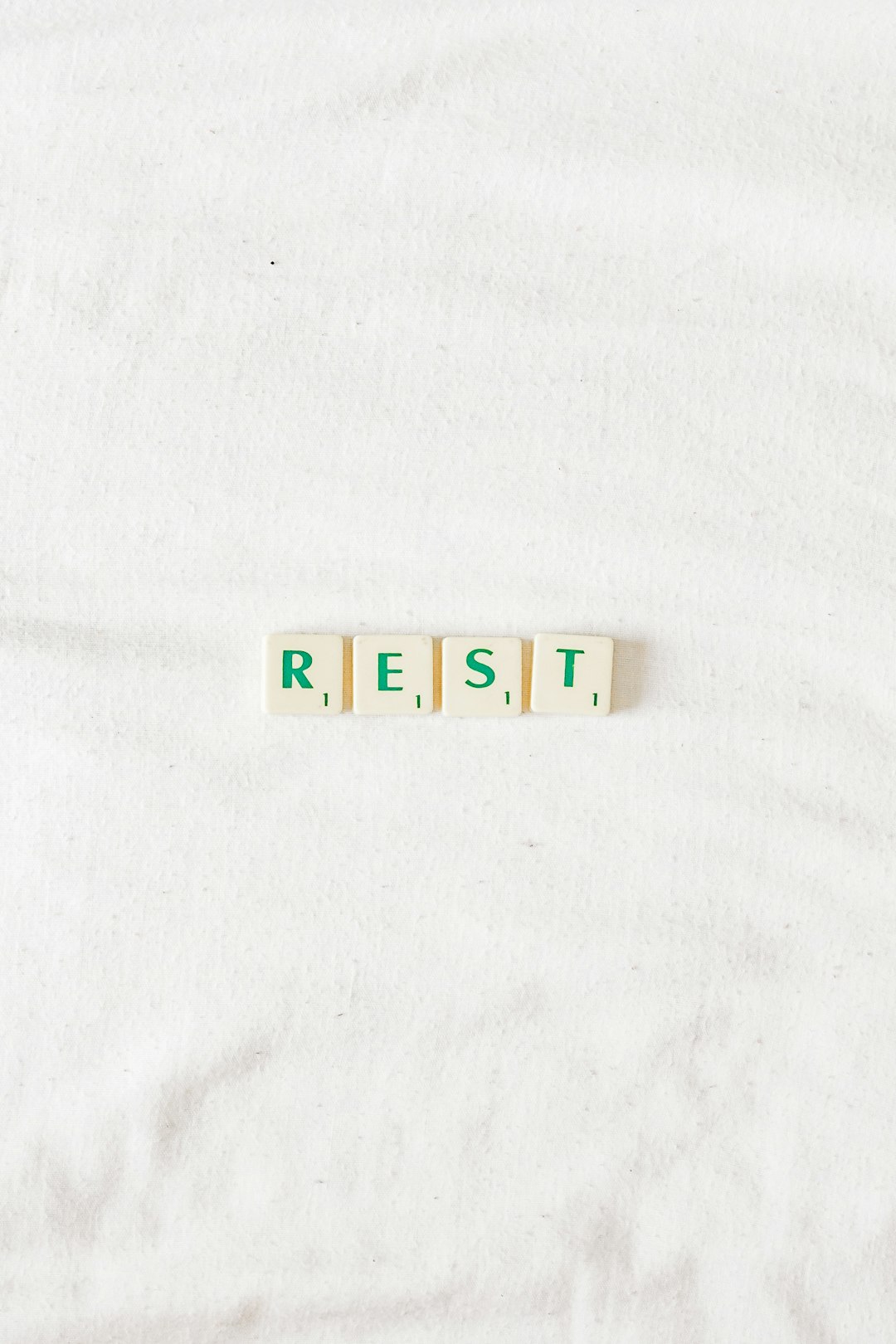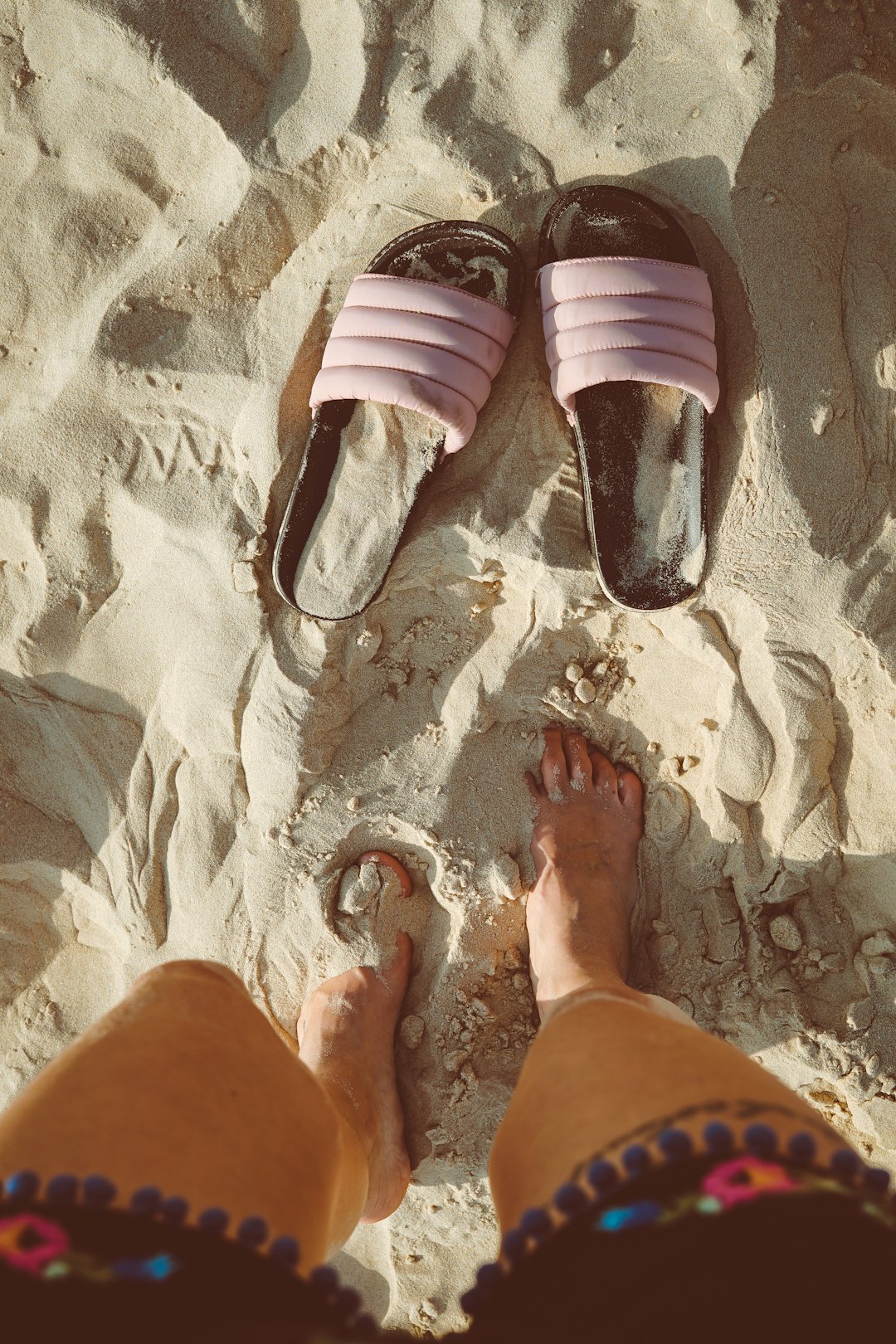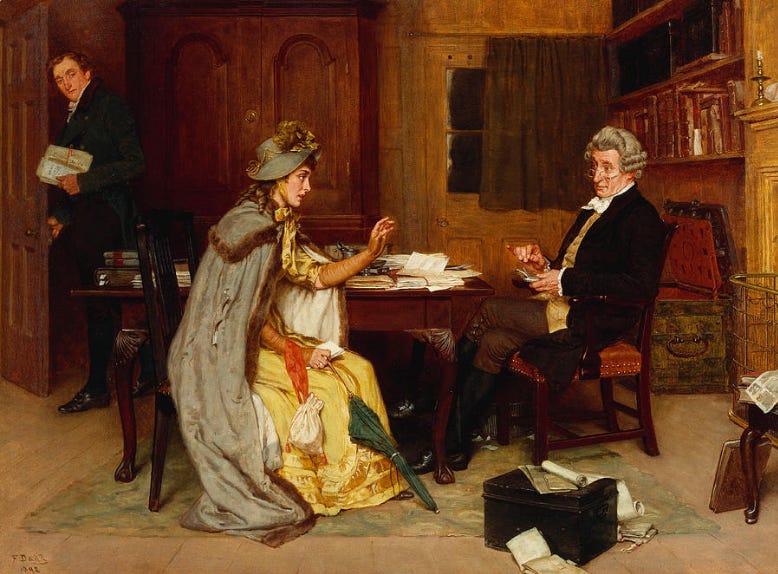"I Have to Rest Like My Life Depends on It"
Why one successful entrepreneur is wintering this year (plus, small steps you can take toward a deliberate rest practice)
Take a moment and picture someone (even an abstract someone) who embodies deliberate rest and wintering. Who comes to mind? I’m willing to bet that whomever you pictured, that person is NOT a lawyer.
I love people who defy stereotypes, which is why I’m excited to share a very special interview with Practically Deliberate readers. It’s with - wait for it - a lawyer and entrepreneur who is embracing deliberate rest and wintering.
First, I want to acknowledge that for many people, deliberate rest and wintering aren’t options due to poverty, violence, America’s lack of a real social safety net, and other atrocities. I’ve spent the majority of my career working on behalf of people with far too few choices available to them; I understand it is a privilege even to contemplate the concepts of deliberate rest and wintering.
And yet, I firmly believe these concepts are worth exploring even though they’re not available to all (yet). There are many worthy organizations working to democratize rest. I encourage you to check out Radical Reset, co-founded by my friend Tes Cohen, which facilitates “Reset Experiences,” including for women of color change-makers, and The Sabbatical Project.
Many people are in the privileged position of being able to embrace deliberate rest and still feel, for a variety of reasons, that these options are not feasible (I know this because I was once one of those people); I want to challenge that notion.
In today’s post, I interview Layne Lyons, an Emory University and Duke Law School-trained lawyer for women-owned solo and small businesses. She uses trademarks to protect her clients’ brands, and written contracts to protect their money, relationships, content, and sanity so they can build and scale with confidence.
I was first introduced to Layne by Megan Tusing, the talented narrator of the Money and Love audiobook. Megan and I had connected on Instagram, and she shared a link to Layne’s services. The idea of the Money and Love Institute was percolating, and I knew I’d need a lawyer. I became Layne’s client, and we’ve partnered for the last nine months to button up my business.
At one point in October, as we were working on a copyright application, she mentioned she’d be closing her office for the month of December. I had just written about the concept of deliberate rest, so this got my attention. Many companies close between Christmas and New Year’s, but closing for an entire month? That was different.
I asked Layne if I could interview her for this newsletter about her decision, and what she shared was so compelling, I decided to devote nearly an entire post to her story. If after reading Layne’s interview, you’re inspired to take steps toward adopting a deliberate rest practice of your own, I’ve included a few questions for you to consider.
Q&A with Layne Lyons, JD, Trademark + Contracts Lawyer
Note: this interview has been edited for clarity and brevity.
A decision born of necessity
Abby: You decided to close your business for the month of December this year. When did you make this decision, and what prompted/inspired you to do so?
Layne Lyons: It was a decision born of necessity. I’m a workaholic. There, I’ve said it! Yes, left to my own devices I’ll work myself into the ground. I’m a trademark lawyer and I love what I do. But I’ve never been able to find balance and walk away from work at (ahem) 7 pm. I’ve always worked long hours, early hours, late hours, weekend hours. And being responsible for hundreds of clients added a pressure that kept my nose to the grindstone and my body chained to my laptop. Until it all caught up with me.
In 2009, I became very sick, with a disease that baffled doctors and defied diagnosis. It began with pain in my hands and feet and eventually spread to the connective tissue in my whole body. The pain was excruciating and, coupled with crushing exhaustion, meant I couldn’t do even basic functions like hold a fork or stand on my feet. I ended up in a motorized wheelchair without the use of my arms or legs. My husband and I went on a 7-year healing quest around the globe, staying in hospitals for months on end in Switzerland, Mexico, and the US.
No one ever figured out what was wrong with me; the official diagnosis I was given was: “Fatigue.”
I spent every waking moment working to heal myself. I tried an 18-month juice fast, I drank turmeric mud, did daily bee venom injections, lasers, cryotherapy, hot saunas, homeopathics, pharmaceuticals…everything!
I had to stop working hard to get better
I always sensed, in the back of my mind, that I had gotten sick because I had burned my candle at both ends. I had worked myself into the ground. That feeling got stronger and stronger until finally, there was a moment, toward the end of my journey, where I realized I had to stop working hard to get better. I had to put down the books on the brain-body-pain connection, I had to take breaks from my endless internet searching, I had to stop asking questions on forums. I had to get out of the way.
It was the hardest part of my healing, but it had a direct result. Stopping healed me.
And at the end of 2015, I was totally pain-free, out of my wheelchair, and back to living my life. I hiked the Andes, snorkeled the Galapagos, danced in the Greek Islands, went on Safari in Botswana, and, went back to work.
I started slowly, with just a few trademark clients, just a few hours, but (in typical me fashion) I built it into a time-hungry all-consuming empire. I added team member after team member, eventually reaching eleven of us, all working to operate and build my law firm. And, with over 300 clients to support, there was enough work to keep me on client calls and in front of my computer long into the night.
Somehow I missed the pattern creeping up again. I rigged a laptop desk over my stationary bike so I could work “just one more hour” while I exercised. I refused to listen when my husband commented how, coming out of my office at the end of another grueling week, I looked pale and exhausted, like a wrung-out washcloth. I. Just. Kept. Going.
Until one day, one hand started hurting. And then the other. And then both feet.
The only surprising thing is that I was surprised
The only surprising thing is that I was surprised that my overworking had caused the same illness a second time. And, sitting in a (new) motorized wheelchair this past summer, without the use of my arms and legs again, unable to hold a fork again, unable to stand from the pain again, I knew I had to make a change.
I spent August through November setting it up. Clearing the way to close my office for the month of December. For Rest.
I’m here now, starting this sabbatical. But it’s from a place of what I call “rest debt,” and I know I’ll need the first weeks just to catch up. To recover. To nap. To sleep hard. To deliberately rest.
I find myself trying HARD to rest. I’m reading books on rest and listening to podcasts about doing nothing and I can feel myself doing that same hard work, having a try-hard attitude all over again. It’s like now I’m trying with all my might to not do anything.
So I know there’s work to NOT be done. I know I need to learn, for probably the first time ever, how to allow myself to be cushioned by the pillows and blankets on my bed, to stare at the clouds and not try to see animal shapes in their contours, to lie in my outdoor bath under the Milky Way and just soak. It’s an UN-doing of sorts and there’s so much to learn and unlearn and not learn.
I have to rest like my life depends on it.

Businesses are greedy. It’s up to me to declare it’s time to rest
Abby: I understand that not everyone around you was immediately on board with this plan. What did you say to the skeptics that helped convince and reassure them?
Layne Lyons: It’s not actually that I said ANYTHING to the people who balked at the idea of me closing my office for the whole month of December. I didn’t actually do anything to try to convince them or change their minds.
What I did do, however, was check in with myself. Each time I got pushback, it prompted me to question myself. To stop and ask myself if this was what I really needed. I asked, “Is this the best next step for me? Is this right?” And every time my heart said, again, this is what I need. I need to stop and rest. I need to recover. The voice was clear and strong every single time: I need rest. I need rest.
Also, I thought about what it would be like by mid-January, immersed and fully back at work, if I didn’t try to rest in December. If I didn’t take a break. It would surely be the same as before. Overworking, burning out, becoming exhausted.
Businesses are greedy. There will always be another email to respond to, another client needing help, another hour to get lost in a project. So it’s up to me to declare it’s time to rest.
And it’s funny, the very same people who said, “You can’t be serious! A month off?? Wow, that’s really outrageous,” have been watching me put the steps into action to take the time off. And almost all of them have circled back to me and told me how inspiring it is to see me do this. They’ve told me how they’re realizing that they too need rest. Some of them have told me that they’ve decided to close their offices for 3 weeks over the holidays, rather than the 2 weeks they were originally planning. I’m so glad. We all need rest. We all need a good nap and fuzzy socks and warm tea and (if you’re in Hawaii like me) toes buried deep in the sand.

The world is not going to end if I take a nap
Abby: Law is not traditionally known as an industry that prioritizes rest; neither is entrepreneurship. How did you "unlearn" what you learned in your legal training and as an entrepreneur to get to a place where you are prioritizing rest for yourself?
Layne Lyons: Law is an industry that has normalized the 80+ hour work week. Trademark law is a demanding practice area that requires working long hours. And I’ve done that. Although it was rewarding beyond all measure and I helped so many entrepreneurs build successful businesses, the long hours have taken a serious toll on my health.
Doing it differently hasn’t been easy, and I am definitely still on a learning path. I hear the voices in my head, criticizing me, telling me I’m lazy and I’m a failure because I’m choosing to rest. The voices are verrrry loud now that the sabbatical is here. But, I know where those voices have gotten me. Burnt out, disabled, destroyed. And I have to make another choice.
To prepare for December, I read many books about rest and asked people in my circle what they would do if they had a month off. And, perhaps more importantly, I asked what they would do if their own internal critical voices got loud for them. The answers I got were so real and so delicious that I added my own and I printed them out.
I now have a “no” list. So I can tell my inner critical voice, “no.” We tried it your way, friend, and now we’re going to try this. It’s okay, I tell the voice. The world is not going to end if I take a nap. My business will not disappear if I’m not available for a couple of weeks. I will be okay if I close my eyes. I can let myself fall asleep.
But, it’s been tough! There’s a pull to check email. A feeling of guilt or some kind of strange FOMO when everyone around me is creating Q1 goals for January. A fear that there won’t be a business to return to if I step away. But I know that nothing is as important as resting right now.
So I go back to my “no” list and I quiet my racing thoughts. I keep asking my body - what do I need right now? What would be restful right now? And I lie on the grass in my garden and I stare at the ocean and I feel my shoulders drop and my breathing slow and I know I’m doing the right thing, for me, for right now.
It takes just a few brave actions to light a path for others
Abby: What do you hope your example inspires others to do in their own work and lives?
Layne Lyons: I hope we can normalize rest. I hope people feel free to take whatever they need. To pick up work and to put it down. To reconfigure their lives so work fits in, not the other way around. Although I’m not doing this for anyone else, I know it takes just a few brave actions to light a path for others. My (first) healing journey was made into a movie that reached audiences across the globe and inspired so many struggling sick people to keep searching, and I hope this chapter of my story will do the same. If someone out there is feeling burned out and chained to their laptop, maybe they’ll see that there’s another option.
Please join me in extending gratitude to Layne for sharing her story with Practically Deliberate readers. To learn more about her law practice, check out her firm’s website.
Now what?
So you’re inspired by Layne’s story, but what if you don’t own your business? Or you didn’t start planning for a sabbatical back in August? I get it. Here are three practical questions to consider if you’d like to adopt a wintering or deliberate rest practice but don’t see an immediate path forward:
What small boundary could you set to free up time during your work day?
shared an approach to overcoming procrastination that also applies here: make the first step as small as possible. If taking an entire month off seems unlikely, how might you free up a smaller slice of time on your calendar? Perhaps you could graciously decline a non-promotable task, or experiment to see if a weekly meeting can shift to every other week. While you can (and should!) set boundaries outside of work, focusing on your work day helps challenge the notion of the primacy of work, so start there.What can you schedule during that time that will be restorative?
After setting a boundary, immediately put something on your work calendar that will fill your cup and recharge your batteries. Don’t just do this in theory — actually schedule an appointment using whatever calendaring tool you use at work. It can be small, such as a mid-afternoon walk. Or lunch once a week not in front of a screen. The key is to block your calendar so your reclaimed time can’t be scheduled over. You can make the meeting private if you feel more comfortable, but you get bonus points if you make it visible, thus normalizing the practice of taking 30 minutes for yourself once a week during work (even the most draconian manager can’t argue with that). Even more bonus points if you make it a recurring appointment.
Who might hold you accountable?
Many of us are powerfully influenced by having an accountability partner. After you schedule your deliberate rest, who might you invite to hold you accountable? That person doesn’t need to physically join you (e.g., if your restorative practice is to enjoy a cup of tea after lunch while looking out the window, text a friend a picture of what you see). But since we know that social connection has powerful health benefits, building in social time during your restorative practice is a two-birds-one-stone approach. So invite a colleague to join you on your mid-afternoon walk. Send a podcast to a friend and make an appointment to discuss it. And, while you’re still together, schedule your next meeting to make it more likely you’ll do it again.
Have you tried any of the above suggestions? Do you have a restorative practice that helps you recharge during the workday? I’d love to hear about it. Please share more in the comments below.
Abby’s Latest
I’m not a coffee person, but I drink A LOT of tea, especially in the winter months. Lingering over a cup of tea is one of my favorite deliberate rest practices.
I’m partial to looseleaf tea, and I recently upgraded my tea game with this Finum mesh brewing basket. The mesh is super fine, so it traps all tea leaves and particles inside, even the tiniest ones. The top can be used as a cover while the tea is steeping, and then as a base for the basket once the tea is done. And it’s easy to clean and dries quickly. Highly recommend (the other reviewers agree)!
My favorite looseleaf teas are from PG Tips (black), Kettl (soba cha), and Yerba Buena Tea Company (honey rooibos).
This is my last Practically Deliberate post before my own wintering starts, but I’ll be back in your inbox in mid-January. Thank you for reading, for subscribing, and for all of your support. I’ve loved having your company on this journey.
Deliberately yours,
Abby
Money and Love makes a great holiday gift! For personalized copies: buy from Booksmith (share personalization requests in the comments section at checkout). For the budget conscious: save more than 40% off the cover price on Amazon right now. Other options here.






Love this 2-part Wintering series Abby! As an independent consultant going on 15 years now, the first thing I instituted for myself was taking loooong breaks and build up my whoosah credit. I totally identify with Layne having people at first being incredulous of her wintering plan and then inspired by it. Our bodies and wellbeing have paid a huge price for keeping up with the American work culture norms. I think the pandemic helped to reset and reframe that for some but it's staying the course on taking rest that is challenging. I am seeing more and more of my colleagues and clients prioritize rest, esp. people of color, even if in the beginning there's feelings of guilt, boredom, and even failure (that you needed rest in the first place!). Here's to sustaining the wintering of our mind, body, and soul as a regular practice!